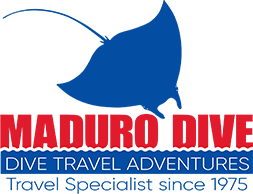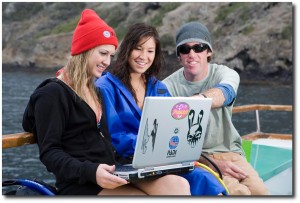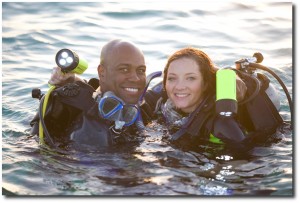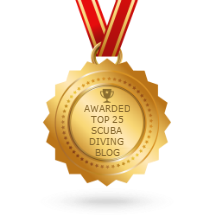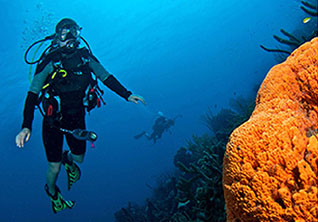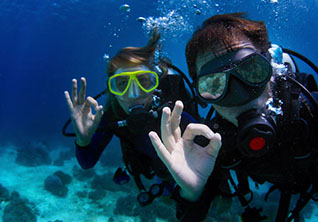In order to enjoy the many wonders and sights of the underwater world, recreational scuba divers need to become “certified.” The process, which is not difficult, is however very important since diving does bring with it some inherent risks.
There are several scuba diving training organizations – PADI, NAUI and SSI are among the most popular. Each has established a set of minimum standards that need to be met for a student to become “certified.”
These standards include knowledge reviews about the scuba process, how to use modern scuba diving equipment and safe diving practices to name some of the top elements. The certification process, introduced as part of an Open Water Course, involves three main elements – basic knowledge and review, pool skills and equipment evaluation and open water training (or check-out) dives.
- Basic Knowledge Review: Today’s modern “e-Learning” techniques and programs have made it simple for students to do the academic portion of their training in the comfort of their home or office. Any eLearning program can be easily accessed so you can learn at your pace. They include video demonstrations, academic exercises and everything necessary to become a certified scuba diver.
- Pool Skills:Â You can’t become a diver without getting WET – online training can only take you so far. You can either complete the online academic portion of your training first OR work with a local dive store to complete the “pool sessions.” This typically involves several sessions where you’ll learn how the equipment works, how to calmly and securely breathe underwater and how to enjoy the scuba diving experience in a controlled environment.
- “Check Out Dives”: The final part of your open water certification program is a series of open water dives with your instructor. During these dives, you will demonstrate your proficiency with the equipment, show your skills and expand your experience in a “non-controlled” environment.

- Photo courtesy of PADI
Many people ask “how long does it take to get certified?” The answer to that can be different for each individual diver. Most courses are “skills based,” meaning that once you master a skill, you move on to the next. Some students pick these skills up faster than others. As a rule, most courses can be completed in a few weeks depending on the schedule and number of sessions each week.
Once you receive your Open Water certification, you are able to rent equipment and scuba dive virtually anywhere in the world. You will receive a “C-Card” with your photo on it that becomes your license to dive. Your certification has no expiration, but it’s recommended that you stay current and get in the water at least once a year.
Open Water certification is just the beginning. Many divers choose to take advanced courses following their initial certification. There are many different specialty courses including Advanced Open Water, Rescue Diver, Nitrox Diver, Night Diver to name just a few.
